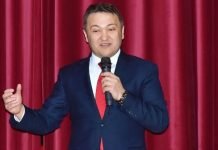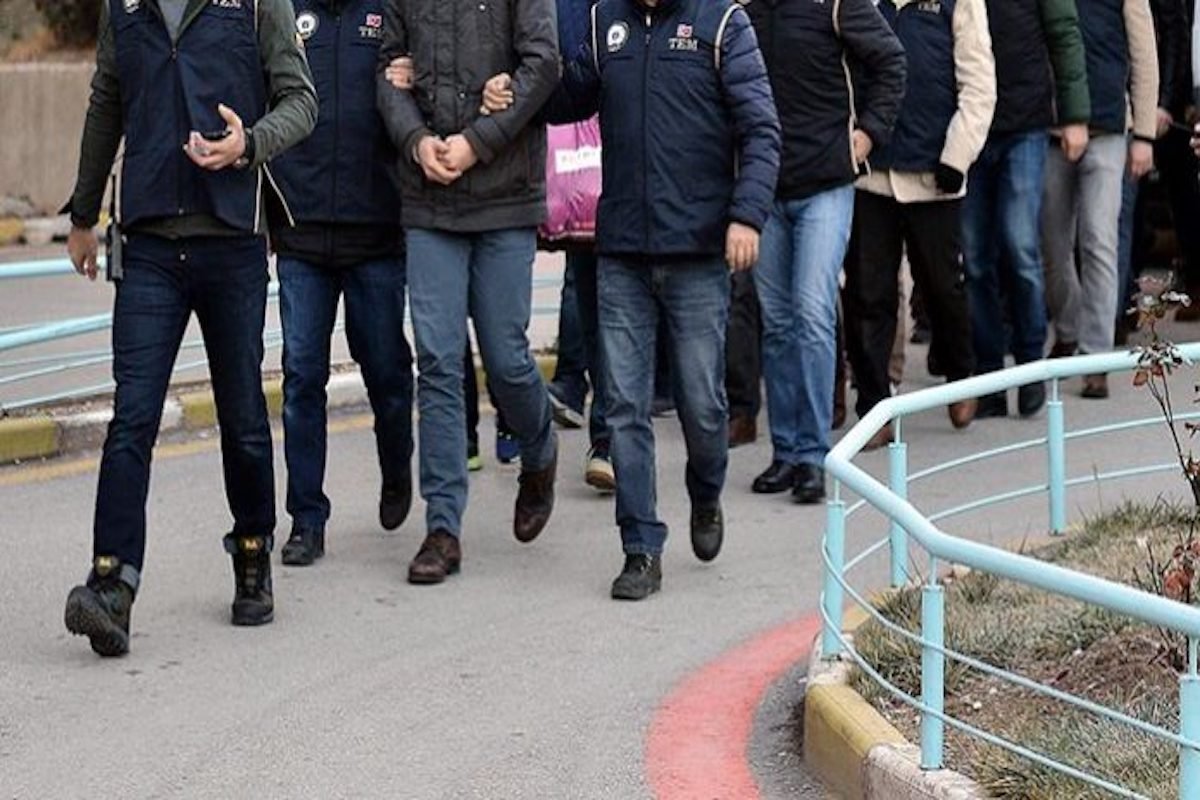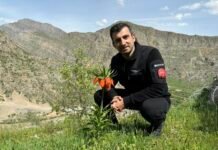
On Sunday night Dutch police removed large posters showing Turkey’s autocratic President Recep Tayyip Erdoğan from the facade of a building in Rotterdam. A police spokesperson stated that the posters were removed at the request of Ahmed Aboutaleb, the mayor of Rotterdam, after information was received that public order may be compromised, nltimes.nl has reported.
“When the police received new information that the hung posters are leading to tensions between supporters and opponents and putting local residents at risk, the Rotterdam triangle [mayor, police, prosecutor] decided that the posters should be immediately removed”, the spokesperson said to NU.nl.
Attempts to convince the owner to remove the posters himself, were not getting quick enough results. The police spokesperson stressed that the posters were carefully removed. “They were neatly folded. Not pulled off or torn to pieces.”
According to AD, the building involved is betting office Pazula on Beijerlandselaan in the Rotterdam neighborhood of Feijenoord.
Rotterdam city councilors are furious. “This is pure provocation at a very sensitive time,” Leefbaar Rotterdam councilor Tanya Hoogwerf said to the newspaper. “The posters are very dominant. It is very forward in such a vulnerable area. Little is needed to kindle the unrest. Only one person has to get angry and you run the risk of fires being set, bringing the safety of the area in danger.”
Setkin Sies of ChristenUnie/SGP could also not believe his eyes. “What possesses a person to provoke in this way? This is not good for peace in the city.”
Also, according to Dutch media, the attempted coup in Turkey last year led to a significant increase of discrimination based on to political affiliation reports in the Netherlands, according to the Dutch national association against discrimination LVD. Last year the association received 151 reports of discrimination based on political affiliation, compared to only 14 such reports in 2015. Most of these reports came from Turkish-Dutch, NOS reported.
According to LVD president Frederique Jans, the failed military coup in July 2016 also led to disagreements in the Netherlands. Relatively many of these politically-based discrimination reports came from Rotterdam. “They were done, for example, by people who follow the Gülen movement or are believed to do so. There were, for example, shopkeepers that were boycotted or had graffiti on their doors or were even threatened,” he said to the broadcaster.
Two Turkish diplomats were reportedly detained after Turkish Minister of Family and Social Policy Fatma Betül Sayan Kaya was expelled from the country when she insisted on entering the Turkish Consulate General in Rotterdam. Kaya had crossed the border into the Netherlands by car after The Hague revoked clearance for the aircraft of Turkish politicians to land on Dutch soil.
Turkey experienced a military coup attempt on July 15 that killed over 240 people. Immediately after the putsch, the Justice and Development Party (AK Party) government along with President Erdoğan pinned the blame on the Gülen movement.
Gülen movement is inspired by the US-based Turkish Muslim intellectual Fethullah Gülen who has been advocating science education, interfaith and intercultural dialogue and community contribution. Gülen has been a vocal critic of Turkish government and autocratic President Erdoğan on massive corruption in the government as well as Turkey’s aiding and abetting of radical groups in Syria. Erdoğan launched an unprecedented persecution against Gülen and his followers in December 2013 right after major corruption probe that incriminated Erdoğan’s family members.
The ruling Islamist leaders labelled the movement as ‘FETÖ’, a terrorist organization, although Gülen, 75-year old cleric, and his followers have never advocated violence but rather remained staunchly opposed to any violence, radicalism and terror in the name of religion.
In the currently ongoing post-coup purge, over 135,000 people, including thousands within the military, have been purged due to their real or alleged connection to the Gülen movement. As of March 20, about 95.000 people were being held without charge, with an additional 47.127 in pre-trial detention. A total of 7,316 academics were dismissed, and 4,070 judges and prosecutors were purged over alleged coup involvement or terrorist links.
March 20, 2017















